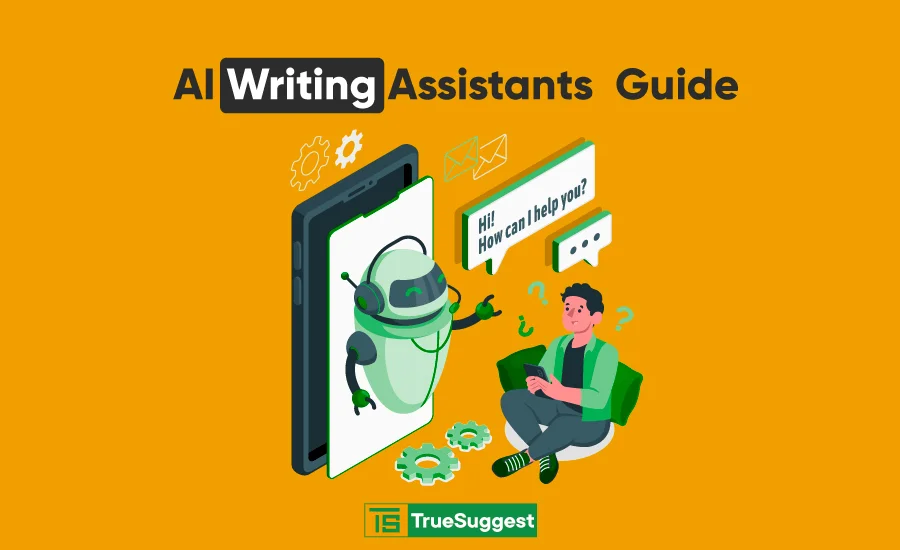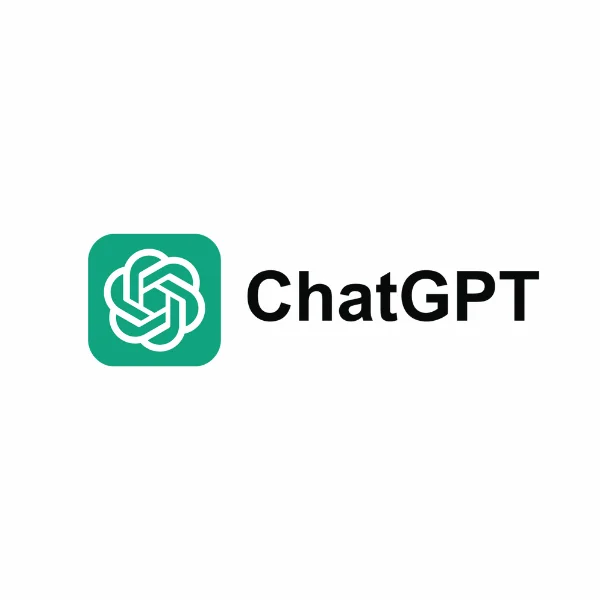What Is the AI Writing Assistant

Artificial Intelligence (AI) has revolutionized various aspects of our lives, including how we write and create content. Among the most impactful advancements is the AI Writing Assistant.
This innovative tool leverages machine learning algorithms and natural language processing to aid individuals and organizations in crafting high-quality, coherent, and engaging written content. The AI Writing Assistant is designed to help with tasks ranging from basic grammar checks to generating entire articles, making it an invaluable asset for writers, marketers, students, and professionals alike.
By automating the more tedious aspects of writing, these assistants allow users to focus on creativity and idea generation. Whether you're drafting an email, writing a report, or developing marketing copy, an AI Writing Assistant can significantly enhance your productivity and the quality of your output.
As AI technology continues to evolve, the capabilities of these assistants are expected to expand, offering even more sophisticated support and becoming an indispensable tool in the digital age.
What Is the AI Writing Assistant?
An AI Writing Assistant is a software tool powered by artificial intelligence that assists users in various writing tasks. It employs advanced algorithms and natural language processing to understand and generate human-like text. These assistants can provide grammar and spelling corrections, suggest better word choices, and even help structure sentences and paragraphs. Some advanced AI Writing Assistants can generate entire pieces of content based on a brief prompt or outline. They are widely used in different fields, including education, business, and marketing, to enhance the quality and efficiency of writing. By automating repetitive and mundane writing tasks, AI Writing Assistants enable users to focus more on creativity and critical thinking.
AI Writing Assistant Features
AI Writing Assistants come packed with a variety of features designed to improve the writing process. One of the most basic yet crucial features is grammar and spelling correction, which ensures that your text is free from common mistakes. Style and tone suggestions help tailor your writing to fit the intended audience, whether it's formal, casual, or persuasive.
Another valuable feature is plagiarism detection, which checks the originality of your content and helps avoid unintentional copying. Additionally, many AI Writing Assistants offer content generation capabilities, allowing users to create drafts or even complete articles based on a given prompt.
These tools often include a thesaurus and dictionary for quick reference and synonym suggestions, enhancing vocabulary usage. Some advanced versions incorporate language translation and support for multiple languages, making them useful for global communication. By integrating these features, AI Writing Assistants streamline the writing process, making it faster, more efficient, and more effective.
Benefits of the AI Writing Assistant
The benefits of using an AI Writing Assistant are numerous and impactful, particularly in terms of enhancing productivity, improving the quality of writing, and fostering creativity.
1. Productivity
AI Writing Assistants can significantly speed up the writing process by automating mundane tasks such as proofreading, grammar checking, and formatting. This allows writers to focus more on generating ideas and creating content rather than getting bogged down by technical details. For instance, a task that might take hours can be reduced to minutes, freeing up valuable time for other activities.
2. Improved Writing Quality
These tools are equipped with sophisticated algorithms that can detect and correct a wide range of errors, from simple typos to complex grammatical issues. They also provide style and tone suggestions, helping writers produce clearer, more polished, and engaging content.
The consistent feedback on writing quality can lead to a significant improvement in writing skills over time.
3. Creativity Boost
By handling routine writing tasks, AI Writing Assistants free up mental space for more creative thinking. They can also generate new ideas or provide alternative phrasings and structures, inspiring writers to explore different angles and approaches in their work. This can be particularly useful in brainstorming sessions or when dealing with writer's block.
4. Consistency
For businesses and organizations, maintaining a consistent tone and style across various pieces of content is crucial. AI Writing Assistants ensure that all communications adhere to the set guidelines, creating a unified brand voice. This is especially beneficial for large teams where multiple writers contribute to content creation.
5. Accessibility
AI Writing Assistants are valuable tools for non-native English speakers or individuals with writing difficulties. They provide the necessary support to produce high-quality content, bridging the gap between language barriers and enhancing communication. This inclusivity promotes a more diverse and global exchange of ideas.
6. Cost-Effective
Hiring professional editors and writers can be expensive. AI Writing Assistants offer a cost-effective alternative, providing similar quality improvements at a fraction of the cost. This makes them an attractive option for startups and small businesses with limited budgets.
7. Real-Time Collaboration
Many AI Writing Assistants come with features that support real-time collaboration. Teams can work together on documents simultaneously, making edits and suggestions in real-time. This enhances teamwork and ensures that everyone is on the same page, literally and figuratively.
8. Data-Driven Insights
Advanced AI Writing Assistants provide analytics and insights into writing patterns, helping users understand their strengths and areas for improvement. By analyzing this data, writers can make informed decisions to refine their style and approach, leading to continuous improvement in their writing.
9. Customization
Users can customize AI Writing Assistants to suit their specific needs. Whether it's setting the preferred writing style, tone, or specific vocabulary, these tools can be tailored to meet individual preferences and requirements. This flexibility makes them versatile tools for a wide range of writing tasks.
10. Scalability
For businesses, AI Writing Assistants offer scalability in content creation. Whether it's generating multiple blog posts, product descriptions, or social media updates, these tools can handle large volumes of content efficiently. This scalability is crucial for keeping up with the fast-paced demands of digital marketing and content strategy.
Concerns and Limitations of AI Copywriting Tools
Loss of Human Creativity and Originality
The rise of writing assistant AI raises concerns about potentially losing human creativity and originality in the writing process. While these technologies excel at generating content based on patterns and algorithms, they lack the nuanced and unique perspectives that humans bring.
This could lead to an over-reliance on AI, resulting in homogenized and formulaic writing styles across various platforms. For instance, automated content creators might produce similar articles with slight variations, missing the distinct voice and creativity of individual writers. To preserve human creativity, it's crucial to balance utilizing AI as a tool while allowing human writers to contribute their authentic ideas and personal touch to the content creation process.
Potential Bias and Ethical Considerations
Bias is an inherent risk in writing assistant AI. Biases can be introduced through the training data or the algorithms used.
For example, if the training data includes a disproportionate representation of a certain demographic, the AI may produce biased content. This can have significant ethical implications, as biased content can perpetuate stereotypes and discrimination. To mitigate this risk, it is essential to ensure diversity and inclusiveness in the training data and regularly assess and update the algorithms used.
Additionally, transparency and accountability are crucial, allowing users to understand how the AI makes recommendations and providing mechanisms for feedback and improvement.
Overreliance on AI Writing Assistants
While AI writing assistants can be helpful tools, overreliance on them can hinder a writer's creativity and critical thinking skills. These assistants might suggest generic or clichéd phrases that lack originality and fail to engage readers.
Additionally, they may not fully understand the context or nuances of a particular topic, resulting in inaccurate or irrelevant suggestions. Writers should use AI writing assistants as aids rather than replacements, relying on their own judgment and expertise to produce high-quality content. It's important to remember that human input and creativity remain fundamental elements of effective writing.
Security and Confidentiality Risks
Security and confidentiality risks are important considerations when using a writing assistant AI. These risks include potential data breaches and unauthorized access to sensitive information. For instance, if the AI has access to personal or confidential data, there is a chance it could be compromised.
Additionally, there is always a risk of the AI making errors or providing incorrect suggestions, potentially leading to compromised security. To mitigate these risks, it's important to ensure that the AI has robust security measures in place, such as encryption and strict access controls. Regular audits and monitoring can also help identify and address any vulnerabilities.
Future Developments and Possibilities in AI Copywriting Tools
Advancements in Natural Language Processing
Advancements in Natural Language Processing (NLP) have significantly enhanced the effectiveness of writing assistant AI.
- Contextual Understanding: Modern writing assistants can analyze context to provide more accurate suggestions. For instance, they can correctly differentiate between "they're," "their," and "there" based on the sentence's meaning.
- Grammar and Style Suggestions: AI can identify grammatical errors and offer real-time suggestions to improve writing quality, helping users maintain consistent formatting and style throughout their work.
- Sentiment Analysis: These tools can detect the emotional tone of a piece and suggest alternative phrasing to improve the overall sentiment, aiding in tailoring the tone to the intended audience.
- Multilingual Support: NLP advancements have enabled AI to assist users in multiple languages, promoting global accessibility and inclusivity.
Integration with Voice Assistants
Integration with voice assistants is crucial for writing assistant AI. Voice commands enable hands-free operation, allowing users to dictate their text instead of typing. This increases convenience and efficiency, especially in scenarios where typing may be difficult or impossible, such as while driving or multitasking.
Moreover, voice assistants can provide real-time feedback and suggestions, enhancing the writing process and improving output quality. The seamless integration of writing assistant AI with voice assistants ensures an intuitive user experience, making it an essential feature for any writing assistant AI system.
Personalization and Customization Features
Writing assistant AI tools now offer a range of personalization and customization features, allowing users to tailor the tool to their specific needs and preferences.
- Customizable Style Suggestions: Users can adjust the level of formality or tone to match their writing style.
- Writing Goals and Word Count Targets: Users can set specific goals or targets to stay motivated and focused during the writing process.
- Personalized Word Banks and Glossaries: Users can create and access a list of frequently used terms or jargon for quick reference.
Conclusion
AI Writing Assistants are transforming the way we approach writing by enhancing productivity, improving quality, and fostering creativity. Their ability to automate routine tasks, provide valuable insights, and support diverse writing needs makes them indispensable tools in the modern writing landscape. As AI technology continues to advance, the capabilities and benefits of these assistants are only set to grow, further revolutionizing the writing process






























